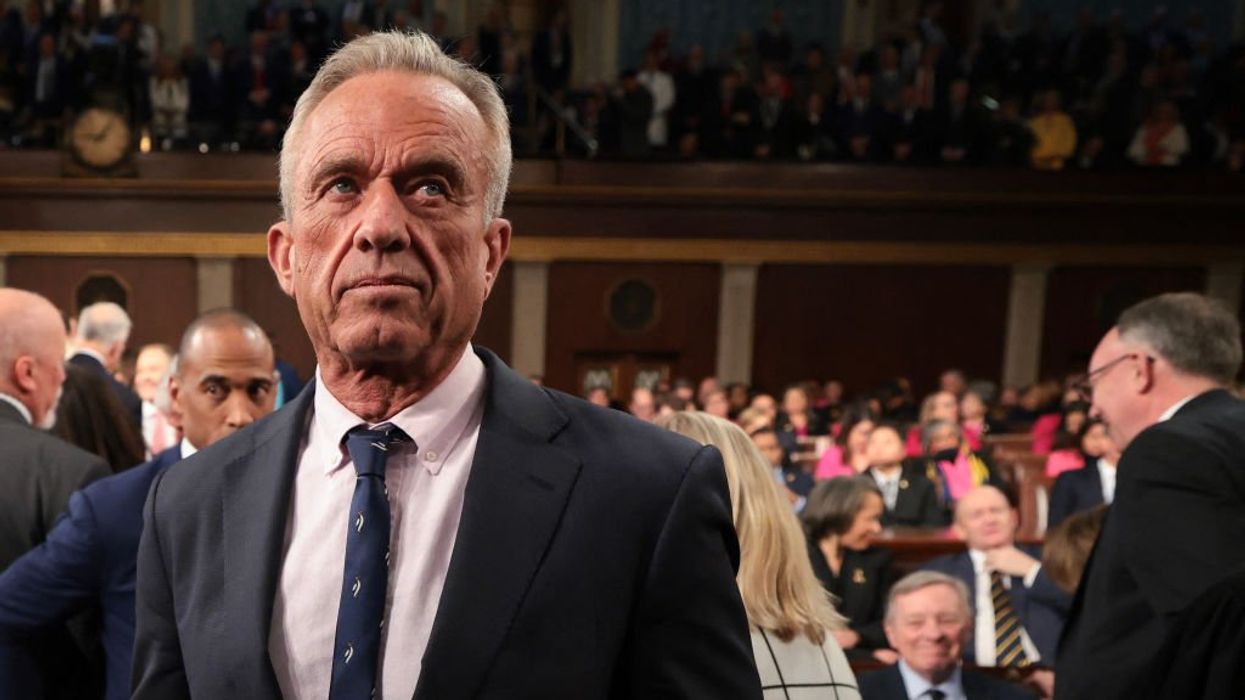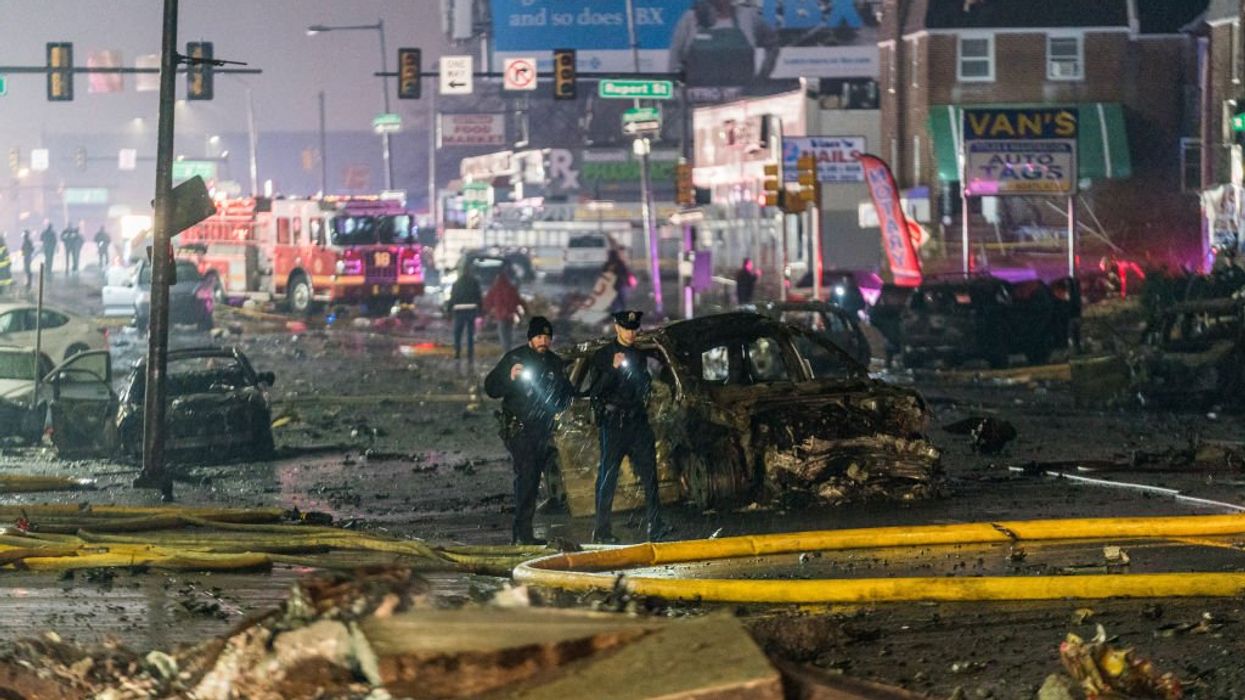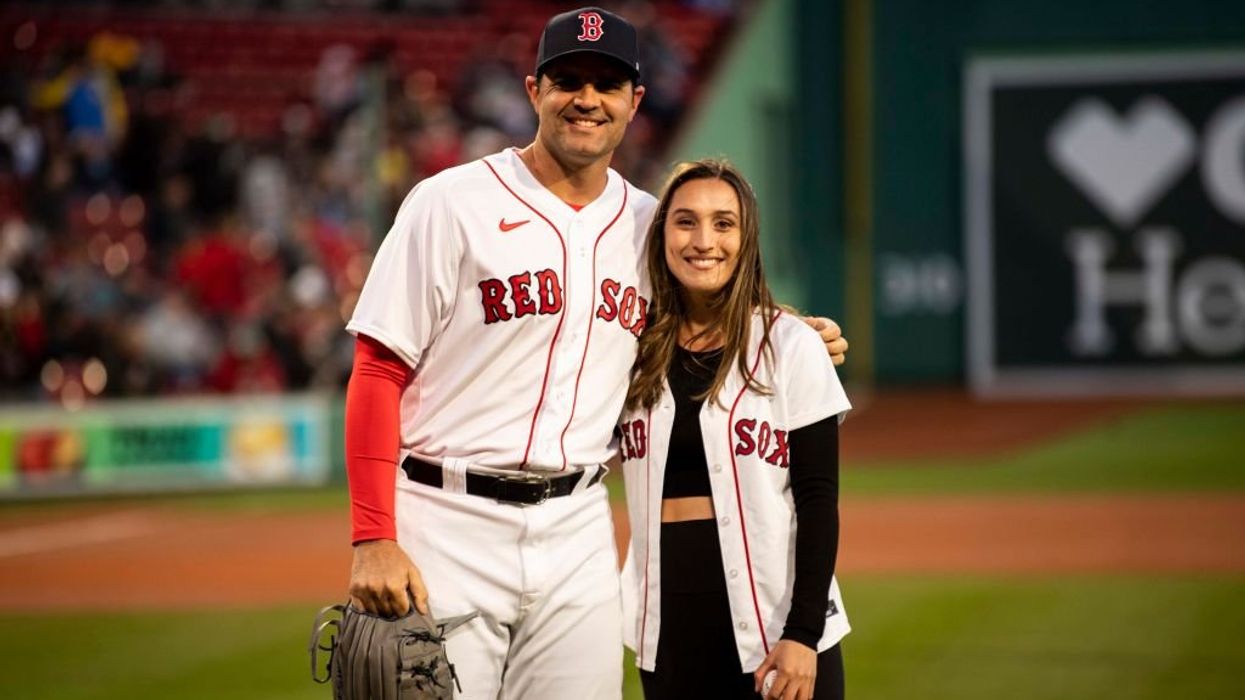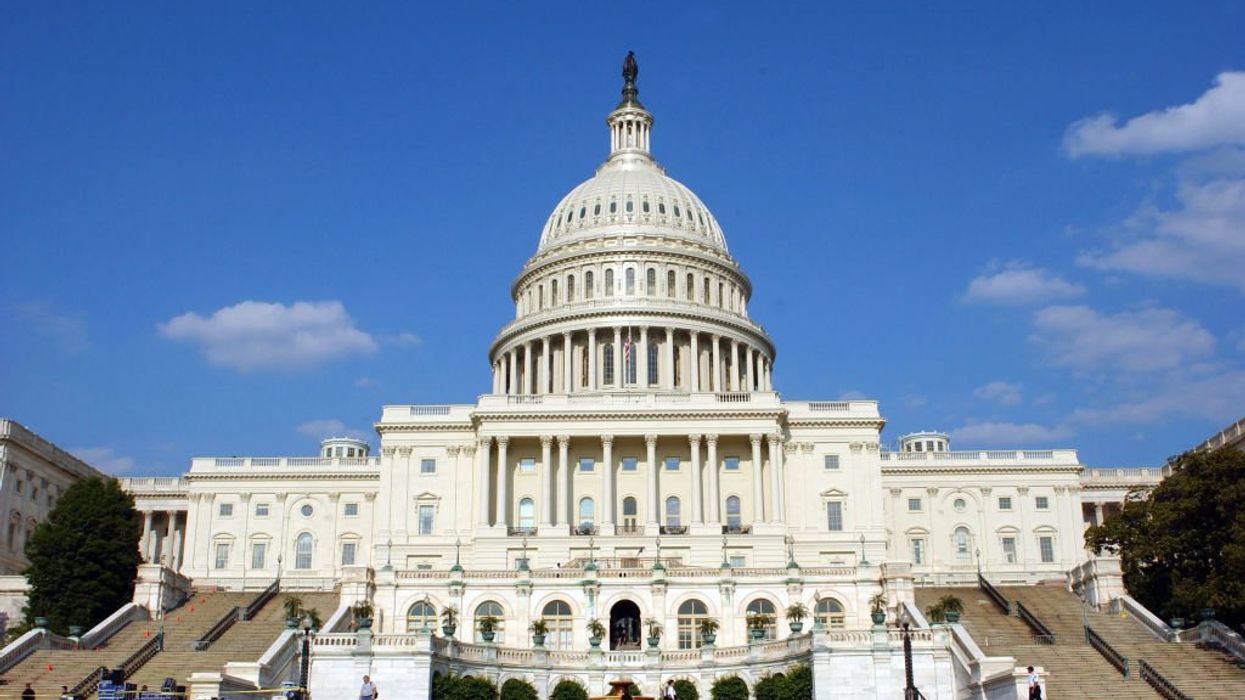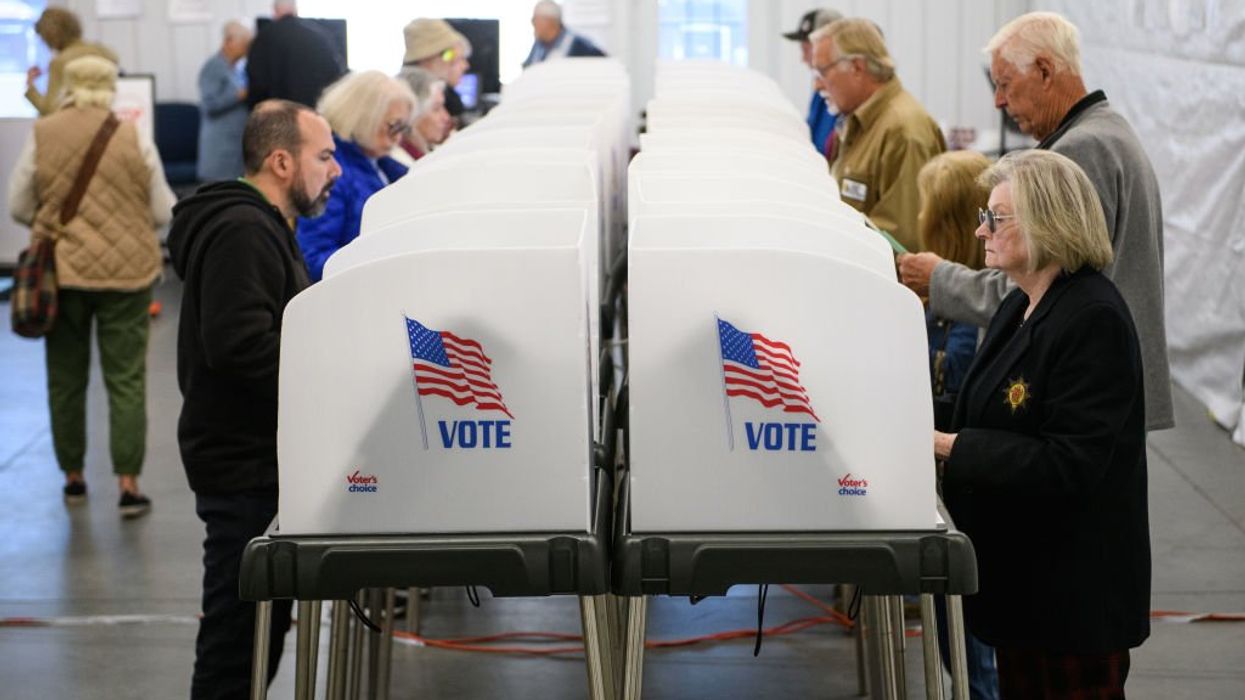Newly elected Senator Ben Sasse joined Glenn's radio program to discuss how the presidential election is shaping up from a Washington, DC perspective Tuesday morning.
Glenn asked about a Twitter campaign the Nebraska senator carried out over the weekend, in which he questioned how Donald Trump would govern, should he become president of the United States.
"I have lots of concerns," Sasse answered. "It's not at all clear what the core guiding principles are of Mr. Trump."
He continued.
"Trump is entertaining. He's a lot of fun. He calls it like it is about a bunch of things that are broken. Now, who is he really? And what would he do if were president?" Sasse said.
Below are some of the questions Sasse posted on Twitter.
.@realDonaldTrump
Questn1. You said you want single-payor “govt pays4everyone" HCare. If that isnt your position now when did it change?Why?
— Ben Sasse (@BenSasse) January 25, 2016.@realDonaldTrump
Q2: You’ve said you “hate the concept of guns.” Why the change? When did it happen? What’s the 2nd Amendment mean to you?
— Ben Sasse (@BenSasse) January 25, 2016.@realDonaldTrump
Q3: A few yrs ago u proposed $6trillion tax hike. Still want to do that? Agree w/ Biden that higher taxes=more patriotism?
— Ben Sasse (@BenSasse) January 25, 2016.@realDonaldTrump
Q4: You brag abt many affairs w/ married women. Have you repented? To harmed children & spouses? Do you think it matters?
— Ben Sasse (@BenSasse) January 25, 2016Listen to the full interview or read the transcript below.
Below is a rush transcript of this segment, it might contain errors.
GLENN: We have very few friends in Washington, as you might imagine. We don't like a lot of people, especially in the capitol or in the administration. But there is one senator that is a new senator that we really, really trust. And he had an interesting weekend on Twitter. And we're going to start there with some questions that he posed. He joins us from Washington, DC. Ben Sasse, right now.
(music)
GLENN: Welcome to the program. From Nebraska, Senator Ben Sasse. How are you, sir?
BEN: Doing well, Glenn. Good morning. Thanks for invite.
GLENN: How are things feeling in Washington, DC, with the way the presidential election is shaping up? It looks like Hillary Clinton is in trouble. And we may be looking at a Bernie Sanders on the Democratic side and possibly either Ted Cruz or Donald Trump. How are people feeling in Washington? What are you hearing in the halls?
BEN: You know, I don't pay a ton of attention to my colleagues' chatter on that stuff. Just to be honest, it's amazing how much there's certainty in Washington, until there's not certainty. And there's another certainty two weeks later. I don't think Washington knows very much about all of life. But what's the old line? Often wrong, but never in doubt. So prognostications, predictions by politicians --
GLENN: But what I'm asking is, you know, the establishment has come out for Donald Trump now, and they're talking about deal-makings. And he's on the road talking about deal-makings with the establishment.
Are they concerned about a Trump or a Cruz presidency? Are they concerned about a -- a Clinton or a Bernie Sanders? I mean, I would imagine if you're the Democrats, you might be a little freaked of the idea of Bernie Sanders.
BEN: Yeah. I mean, Bernie is such a likable guy. But, you know, sometimes it feels like -- the ideas sound like we might have just gotten our finger stuck in a light socket for a moment, so I don't know how seriously many people are often taking that possibility. But I agree with you that Mrs. Clinton's legal predictions look very, very complicated.
But, you know, the whole deal-making aspect of it, you know that I'm new here. I've been here 13 months. I've never run for anything before in my life until I was elected to the Senate. And I still live in Nebraska, and I commute most weeks. I bring a kid back. We have three little kids, and I bring a kid back and forth with me every week. So my community or my neighbors are people at church and at the grocery store back home. And one of the great things to say amid all that is wrong in Washington, is most of America doesn't take this place very seriously. They're not addicted to politics. When I'm back home, very rarely do you find anybody in line at the grocery store saying, "If only there were only more insider deal-making in Washington, that would fix all of our problems."
(laughter)
GLENN: Okay. So why for the love of Pete, it's very dangerous and hazardous to your career and health to take on Donald Trump? This weekend, you went on -- you're not endorsing anybody. But you went on and you started doing a Twitter storm here on -- you said you've struck a cord with the American people, Mr. Trump, if I may quote. I think you've rightly diagnosed much of what's wrong in DC. You're very talented and on a roll. If I were betting, you're likely to be the next president of the United States, and congratulations.
But in our house, we've talked about your phenomenal campaign a lot. Good to see how people are talking directly about DC's big mess. But at the same time, we have questions of how you would govern. We'd like to ask some questions, if you're willing to take them.
BEN: Yeah, this is actually what we talk about in my house, with my family. But also with my dad and my brother and my sister-in-law and my grandpa. And there's a debate about, what does Trump actually believe in a whole bunch of issues? It's clear that he's tapped into a vein that most of what's happening in Washington right now is a mess and is broken and is not headed in the right direction. Okay. Good so far. Now, where do you want to take us?
I have lots of concerns that it's not at all clear what the core guiding principles are of Mr. Trump. And so, you know, if Cam Newton hadn't been so dominant the other night. If Arizona had had any defense, maybe none of this would have happened. But Sunday night, I'm watching the NFL game, and I was just back from New Hampshire. I spoke at the first in the nation presidential primary in New Hampshire, and I heard the same things in New Hampshire that I hear in my house, which is, Trump is entertaining. He's a lot of fun. He calls it like it is about a bunch of things that are broken. Now, who is he really? And what would he do if were president? So we threw a few of those questions.
GLENN: All right. So here are the questions. You want to go through them, one by one?
BEN: Sure. Let's do it.
GLENN: All right. Go ahead.
BEN: Well, first, he has advocated for single-payer health care before, which I think is term for it was government pays for everyone. The government will pay all the bills.
GLENN: So you know, he said that just last year. He said that in September of last year.
BEN: And so now he's campaigning as a conservative. And I don't know of anybody who holds the conservative principles that most of life should be lived outside of Washington that thinks the best thing you can do is insert government bureaucrats between doctors and nurses and sick people in America. That's not a conservative position. And if he doesn't believe in single-payer anymore, that's great. I would be glad. I -- there might be a legitimate conversion story there, but I'd like to hear it. And I think people in New Hampshire and Iowa and certainly in my state in Nebraska people would like to hear it. If you don't believe in single-payer health care anymore, when did it change, and why did it change? And what are you precisely for?
GLENN: Next question.
BEN: There's some video out there that I've seen on the internet. I'm a big defender of the Second Amendment. It is my right because God made me a dad and a husband, to defend my property and my wife and my kids. No government gives me the right to defend myself.
And so we're big Second Amendment people in our family. And I've got a brother who pretty much if you rank ordered 100 different issues on earth and then you gave him 100 marbles, he'd put all 100 of his marbles on the Second Amendment and nothing else matters to him. So he asked the other day, what does Trump think about guns? Because there's this video going around where he's on 60 Minutes or somewhere saying I hate the concept of guns. I believe he's advocated for different kinds of assault weapon bans and things in the past. And so if he doesn't hold that view anymore, if he actually affirms the Second Amendment, how does he understand the Second Amendment? When did his view change? Why did it change? You know, what are his fundamental positions on that?
GLENN: I was in Iowa this weekend, and this is kind of what I said. I said, "Look, I understand people changing their mind. I understand people changing their opinion. I believe in redemption and forgiveness. I believe people can make mistakes. I'm the king of redemption. I needed it more than most. So I understand that. But my problem is, I haven't heard when these things have changed for him." And like you said, there might be a really great reason, but because of this administration, is not -- you know, because, "Well, the country is not going in the right direction or because Obama is doing these things or because it's not working," is not enough of a pain to make you fundamentally transform on government health care and "I hate the concept of guns," I'm totally behind the Second Amendment.
BEN: Right. And let's be clear. I want to underscore your point about redemption. I'm a big believer in sin. It's at the core of my identity that I'm a sinner and Jesus is my savior because of the fact that I'm a sinner. So I believe that. I believe you can change views. But you have to be able to explain it. You have to be able to walk people through a process that is coherent, other than saying, "Hey, there's a big constituency out there, and it appears they have a different view than mine, so now I'm going to adopt their's." That's not leadership. That's running in front of a mob. And maybe it's genuine. But I'd just like to hear the story, and I have not heard it.
GLENN: This is one of the reasons, I think, he doesn't want to appear on this program. When we asked him was after months and months of questioning, and we started asking him in late August, early September if he would come on the show. We asked him three times. And the reason why we wanted him on the show was, maybe he has a good reason for all of these things. Let's hear the reason for all of these things. And that's when he didn't want to appear on the show and all the trouble started.
BEN: Thanks for clearing that up, Glenn, because I actually thought it was because you had no audience. I thought there were four people listening and you were going bankrupt. And I was just here as a social call frankly for you and your loneliness.
GLENN: Gosh. Darn it. You let the cat out of the bag.
We're talking to Ben Sasse of Nebraska. Senator from Nebraska. One of the good guys. Number three.
BEN: Where does he stand on taxes? What is his view -- goal of trying to shrink government? We have a government that is out of control. We have 18 trillion dollars of debt. We've got something like three times that much in unfunded obligations that that the government lies about and keeps off their books in our entitlement programs in Social Security, Medicare, Medicaid, and Obamacare. And a few years ago, Mr. Trump had a proposal that he thought he could address a lot of this. By raising taxes $6 trillion. Trillion with a T. That's not even stuff that Bernie Sanders dreams of.
So I'm just curious as to what his view is on taxes in the future. And, frankly, does he agree with Vice President Biden who said, "Higher taxes equal more patriotism?" If you have a view that there's a way to solve our problems by just raising taxes exponentially, I think that would collapse the economy. But I'd love to understand your position because I think most the people that are supporting him don't know he advocated for a 6 trillion-dollar tax increase.
GLENN: Number four.
BEN: Number four. I'm going to read this precisely because we got hit a lot in the press for this. People saying we said things that were quite different than the actual point we were making.
GLENN: No.
BEN: Number four was, you brag about affairs with married women. The key verb here was "brag." Have you repented, not only to the harm to children, but to the spouses that you stole from? And do you think any of this matters?
GLENN: Hang on. I don't know of these stories where he's bragging about having affairs about married women.
BEN: So I read a piece by Lash over the last week that summarizes some pieces of different books he's written. And I guess along the way -- and then I went and looked up one of them. He says, "I've had all kinds of women." And he sort of lists out categories. But one of the categories are beautiful women, famous women, women you would know, pro athletes, or whatever. I don't have the quote in front of me. But along the way, he said single women, married women. There's a sort of bravado about this that lots of guys have done in locker rooms since we were 17 and 24. And men often say and act stupidly.
But there's something quite different than just a question of whether or not certain aspects of fidelity and infidelity are private or public matters. There are reasonable debates to be had about a lot of that. It's something different to brag about having married women. So I'm just curious as to whether or not he thinks relationships and oaths and vows mean anything. Because I'm setting up the next tweet, which is going to be about the Constitution. The commander-in-chief and the president of the United States takes an oath to defend the Constitution against enemies foreign and domestic. And I'm curious as to his view of both.
GLENN: Have you had any response?
BEN: You know, strangely there's this thing called Twitter. I don't know if you've heard of it. But it turns out, on Twitter, if you ask a question and some people don't like it, they're able to create these computer programs called bots. And you can create news by having gazillions of people retweeting that I maybe stole a car or I stole some land, I evicted an old lady. Maybe I was involved in physical violence or sexual violence.
GLENN: Hold on just a second. Well, that's why we had you on, on this washed up show that only has four listeners. We thought you had evicted and abused a little old lady, which was my grandmother, I hear. That's not true?
BEN: I've never been in politics before. You know this. Let's be clear about that. I mean, I am anti-establishment. That's not enough. You have to be more than that. I'm not skeptical of nonpoliticians trying to serve the American people by defending the Constitution. I'm raising my hand here on radio to say, "I've never run for anything before in my life, until a year ago when I was elected to the US Senate. I was a college president for the last five and a half years and a business guy for, you know, a decade and a half before that. So I'm all for lay governments of America. I am against the permanent professional, political class. So that is not my gripe with Mr. Trump.
GLENN: Oh, is that what they're saying about you? You're part of the political class now?
BEN: Oh, I'm sort of -- I don't even know.
GLENN: It's funny. It's amazing. Michelle Malkin. I just talked to Michelle Malkin yesterday. Michelle Malkin is stupid. She's one of the smartest women I know. I'm a washed-up loser has-been, which actually is pretty darn close to being accurate, compared to all the other things he says. But I've sold out. I'm betraying the Constitution. I'm betraying the conservatives. I mean, it's amazing --
STU: You can't even vote in Texas' open primary.
GLENN: Yeah, I can't vote in a Texas open primary.
BEN: You're a Canadian, aren't you? Glenn, I'm trying to level with you.
GLENN: It's amazing how many people we now have to hate if we're on the Trump bandwagon.
BEN: Well, I don't want to go too far afield and get accused of being too much of a nerd here, but it really is worth going back to the Founders for just a second and remember that America is fundamentally about a certain kind of anthropology, a certain kind of belief about human dignity. We are frail, and we are fallen, and we are broken. But we believe in the potential of self-restraint, of growth and discipline and local community and human dignity. And the reason you want self-restraint is because I don't want the government restraining everything. There's so many things that can go wrong in the world, but I don't want more power to try to compel all of life. I want more persuasion. I want more conversion. I want more voluntary engagement. But when you look at Twitter, you realize what some of the Founding Fathers were a little bit worried about --
GLENN: There's no self-restraint. Ben Sasse, thank you very much for talking about us. We appreciate it. I know you have to do something, probably evict an old lady. But we certainly appreciate it. Have you selected a candidate yet, or are you going to?
BEN: No, I don't expect that I will. Who knows where it will end at the back end. But I don't think Nebraskans elected me because they need a lot of advice on who to vote for. But I do think it's a wonderful thing that the Republican Party has a whole bunch of candidates that believe in the Constitution. We already have one party in the country that's gone basically post constitutionalist. If the Republican Party does that, where will we reform from in the future?
GLENN: Good for you. Thank you very much, Ben Sasse. Senator from Nebraska. And really, truly one of the really good guys.
Featured Image: Sen. Ben Sasse (R-NE) (L) is ceremonially sworn in by U.S. Vice President Joe Biden with Sasse's wife Melissa Sasse, son Augustin Sasse and daughter Elizabeth Sasse in the Old Senate Chamber at the U.S. Capitol January 6, 2015 in Washington, DC. (Photo by Chip Somodevilla/Getty Images)



